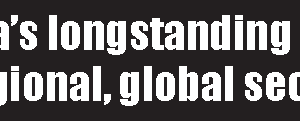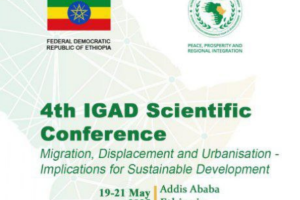The risk of being landlocked with a population of over 120 million is unimaginable. The Ethiopian government seems to understand this issue and is actively searching for alternative sea routes for the sake of its people and the country’s sovereignty. Ethiopia has raised the issue of accessing alternative sea routes due to development and security concerns. Contrary to some claims, it is not a matter of encroaching on other countries’ sovereignty.
Ethiopia has expressed its willingness to utilize ports for mutual benefit on various occasions. Following the signing of the Memorandum of Understanding (MoU) between Ethiopia and Somaliland, Ethiopia has shown its readiness to explore other alternatives. It is important to note that most of Ethiopia’s imports and exports currently pass through the port of Djibouti.
In a recent interview with The Ethiopian Herald, Dareskedar Taye (PhD) a senior foreign relations expert at the Institute of Foreign Affairs (IFA), explained that depending on a single country’s port creates security and economic burdens for Ethiopia. Therefore, the country has been actively searching for different alternatives, but other countries have been unwilling to cooperate. Thus, Ethiopia signed the MoU.
In this regard, Ethiopia is open to cooperating with any entity to utilize ports based on the principle of mutual benefit. The MoU between Ethiopia and Somaliland is seen as a positive step towards regional integration.
According to recent media reports, Somaliland authorities are planning to handle 30% of Ethiopia’s cargo at the Berbera Port, which is managed by the United Arab Emirates DP World Company. To facilitate this, an agreement regarding port usage and customs procedures needs to be signed between Ethiopia and Somaliland. The Somaliland Ports Authority has announced that the agreement is in its final phase and will be signed within the next 60 days.
Saeed Hassan Abdullahi, the Director General of the Somaliland Ports Authority, stated, “Ethiopia is our neighbor. We want to do business with them. We are currently preparing a port use agreement or transit agreement. Once we sign the agreement, we will handle 30% of Ethiopia’s cargo in the first year.” He also mentioned that the agreement is nearing completion and will be signed after 60 days.
The MoU signed by Ethiopia and Somaliland on January 1 is expected to be finalized within the next two months, according to Somaliland officials. Discussions have been held and technical committees have been appointed since the signing of the MoU.
If the memorandum of understanding is finalized and implemented, Ethiopia will have access to Somaliland’s coastal military base, and Somaliland will have the opportunity to gain the recognition it has been seeking for many years. This agreement would enable Ethiopia to use the Berbera port without needing to build another port for its business needs.
It is worth noting that Ethiopia had previously partnered with DP World to develop and manage ports in the region. Six years ago, Ethiopia had a 19% share in the Berbera port through an agreement with Somaliland and DP World. However, the details of why the agreement was not continued are unknown. The collaboration with DP World aims to improve infrastructure and logistics in Ethiopia, further enhancing its trade capabilities.
In an exclusive interview with the Ethiopian Press Agency (EPA) in the recent past, Ethiopia’s Ambassador to the UAE, Ambassador Oumer Hussein, expressed that DP World’s desire to cooperate with Ethiopia in port development is a welcoming approach that the government is actively pursuing. He stated that Ethiopia is open to cooperating not only with DP World but also with any interested companies or countries.
Ambassador Oumer also emphasized that Ethiopia’s potential cooperation with DP World would strengthen its partnership with the UAE and bring greater rewards compared to similar agreements with other parties. He advised members of the Arab League to examine the rationale behind the Ethio-Somaliland port deal and avoid adopting an aggressive and provocative stance.
He further highlighted the growing momentum in Ethiopia’s diplomatic relations with the UAE, supported by ambitious agreements. The UAE’s investment in Ethiopia has reached 2.4 billion USD, and Ethiopians are also investing in the UAE in significant numbers. The two governments share a strong aspiration for the growth of the Ethio-UAE diplomatic ties, and there is still untapped potential for further investment.
Ethiopia’s geographical proximity to the UAE and other Gulf Arab countries presents opportunities to enhance trade and commercial ties. The Gulf Arab countries heavily rely on food imports from distant nations, and Ethiopia has the potential to become an active player in the UAE and the region’s markets.
It is also known that cooperating with Ethiopia on port access issues can contribute to pacifying the volatile region. Many scholars argue that Ethiopia’s development is not only beneficial for the country but also crucial for the sustainable development of the entire region.
The Ethio-Somaliland MoU represents a transformative development in regional trade dynamics, reaffirming the importance of cooperation, integration, and shared prosperity in the Horn of Africa. The partnership between Ethiopia and Somaliland sets a positive example for other nations seeking to overcome geographical challenges and harness the potential of strategic collaborations for sustainable development.
Also, the MoU signifies a significant step forward in Ethiopia’s pursuit of alternative sea routes, breaking free from the constraints of relying solely on the port of Djibouti. It also aligns with Ethiopia’s broader vision of enhancing regional connectivity and fostering economic integration in the Horn of Africa.
In addition to port access, the MoU holds the potential for broader collaboration between Ethiopia and Somaliland in various sectors, including infrastructure development, logistics, and trade facilitation. The agreement is expected to attract investment and contribute to job creation in both countries, further bolstering their respective economies.
Beyond Ethiopia’s ambition to utilize ports for regional integration, the country’s work on electric power integration is undeniable. The country’s desire to strengthen ties with its neighbors through energy cooperation is evident in its efforts to enhance connectivity and trade within the region. The country has a plan to export its electric power to South Africa and beyond the continent.
BY EYUEL KIFLU
THE ETHIOPIAN HERALD TUESDAY 7 MAY 2024




